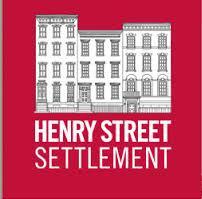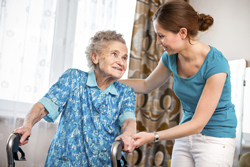| Profiles > Philanthropy > Henry Street Settlement | |||||||||||||||||
| Henry Street Settlement | |||||||||||||||||
|
|||||||||||||||||
| a workforce development center, day care centers, and after school and summer programs for neighborhood youth. | |||||||||||||||||
| Services and Programs of HSS are designed to help individuals become self-sufficient by providing access to education, housing, basic nutrition, healthcare, and employment opportunities. Through Henry Street's programs, senior members receive nutrition, case management, and other vital services; youth receive educational, recreational, and employment services; community members receive primary and mental healthcare, free legal and financial counseling, and are provided help to access benefits, such as low-cost health insurance; homeless individuals and families receive shelter and supportive services; the unemployed or underemployed are provided jobs; and thousands of individuals of all ages are provided access to the arts, including dance, music, theater, and visual arts. | |||||||||||||||||
|
Youth Services at HSS provides a safe, structured, and holistic environment within its programs, which help educate and empower, and promote social and emotional development. The youth program includes day care centers, after-school services, college prep programs, youth employment, GED classes, sports and recreation programs, peer HIV prevention program, summer day camp, and adolescent academic services.
|
||||||||||||||||
| Transitional and Supportive Housing offers four homeless shelters, including one for domestic violence survivors. It also provides supportive permanent housing for (formerly) homeless individuals with mental health issues. | |||||||||||||||||
|
|||||||||||||||||
|
|||||||||||||||||
|
• 483 senior members were provided services through the Naturally Recurring Retirement Community -- allowing them to age in their own home.
|
|||||||||||||||||
Abrons Arts Center -- Located at 466 Grand Street, AAC offers arts instruction (dance, music, visual arts, and theater) at affordable prices to children and adults, and offers performances in three theaters, including the (1915) playhouse. It also has visual arts exhibitions, Artist-in-Residence workspaces, an Arts-in-Education program, and two summer camps (arts and architecture).
|
|||||||||||||||||
Workforce Development Center -- Henry Street offers an array of services for individuals seeking employment. The organization’s Workforce Development Center (WDC) provides the tools and resources needed to complete a successful job search. This program is also available for non-fluent English speakers. WDC services are also available to out-of-school, out-of-work youth aged 16-24. Henry Street has several programs for youth seeking employment, including the Summer Youth Employment Program and the Young Adult Internship Program. Key statistics for Fiscal year 2013 are as follows:
|
|||||||||||||||||
Health and Wellness Services -- State-licensed mental and primary care clinics, psychological counseling, continuing day treatment program, a parent center, HIV family services, and home housekeeping services. Key statistics for fiscal year 2013 are as follows:
|
|||||||||||||||||
| Neighborhood Resource Center -- To provide assistance to those affected by Hurricane Sandy. Henry Street's Neighborhood Resource Center can help determine whether one is eligible for benefits, and assists them in applying for programs to recover losses from the hurricane. It is a walk-in facility for benefits screening, legal counseling, and access to affordable health insurance. It also serves as an entry point to other Henry Street programs. Referrals to other programs are based in part on the comprehensive assessment conducted. | |||||||||||||||||
JOBS PLUS: Lifting Employment on the Lower East Side In March 2013, HSS started the Jobs Plus program – It is an employment service for residents of the Jacob Riis and Lillian Wald Houses on the Lower East Side. Some 138 individuals have already undergone orientation, 50 have been placed in jobs, 30 are enrolled in GED classes, and 85 have received financial coaching services.
The program provides opportunities to residents to improve their skills and build confidence to find and keep a job. Services are also available to those already employed who want to advance in their careers. Among the services offered are job placement assistance, financial literacy workshops, GED classes, career advancement assistance, free income tax preparation, access to legal services, and benefit and entitlement screening. |
|||||||||||||||||
|
|||||||||||||||||
| of $38.3 million against which total expenses stood at $35.7 million. Of the total expenses, $31 million (87%) were towards program services expenses while $4.7 million were expended towards support services. | |||||||||||||||||
| How you can help HSS relies on the generous contributions of supporters to deliver its services. Last year, Henry Street spent 89% of its budget in direct service. The agency has a four-star rating from Charity Navigator. All those who are interested in helping HSS can contribute through a number of avenues. Volunteers play an important role at Henry Street Settlement, helping provide enhanced services and maintain their facilities. Each year more than 1,200 individuals participate in volunteer activities at Henry Street's 17 program sites. Volunteers come from all over the city and sometimes beyond. They are community members, corporate employees, young professionals, college students and parents. Interns and individual volunteers who make a long-term commitment to Henry Street use their skills and expertise to support the Settlement’s mission. They may have the opportunity to learn new skills, fulfill community service requirements and earn college credit. Mentors provide important guidance and support to college-bound and current college students to help young adults successfully complete their education and attain their goals. Corporate or group volunteers spend one day of service (three-hour minimum) engaged in activities that may include serving meals to seniors, supporting childhood education and helping to improve Henry Street’s facilities. | |||||||||||||||||
| To Donate: www.henrystreet.org | |||||||||||||||||
|
Credits
http://www.charitynavigator.org/index.cfm?bay=search.summary&orgid=3817#.UwSqWWKSyi4 http://en.wikipedia.org/wiki/Henry_Street_Settlement http://www.henrystreet.org/programs/ http://www.henrystreet.org/news/publications/news-from-henry-street-fall.pdf |
|||||||||||||||||











